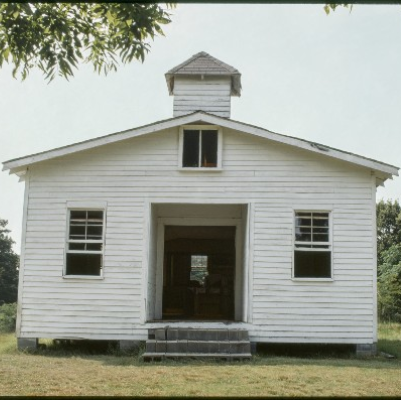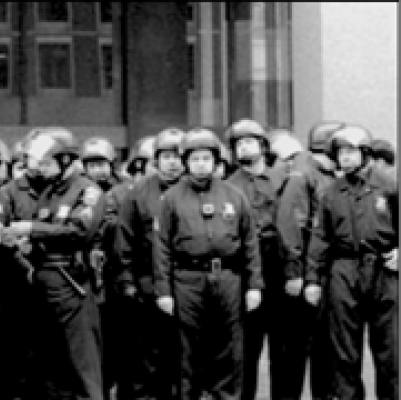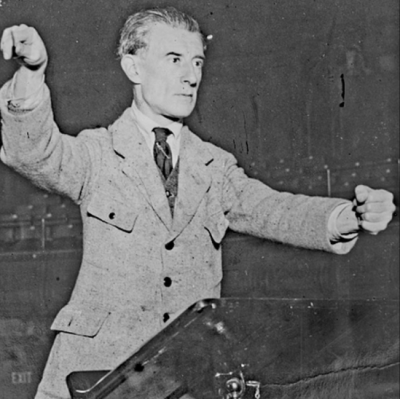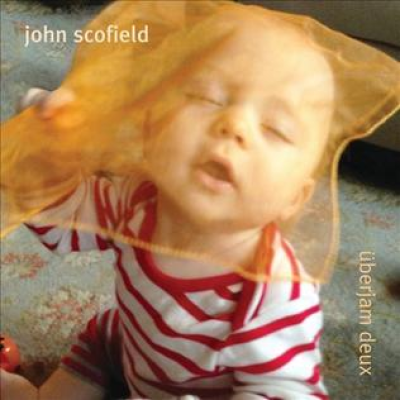“One Suitcase,” a story by Wayne Cresser, was a finalist in our recently concluded 46th Short Fiction Contest. It is published with the permission of the author.
One Suitcase
a story by
Wayne Cresser
*
Henry Bell wished the actress on the TV interview show wouldn’t smile so much. Most show folk, he thought, were not memorable. They were things, as he had written in one of his songs, made on the cheap from neon and crepe. Sometimes he believed it too. Then he’d remind himself that human beings wrote all kinds of wonderful tunes, like “The Wind” — the number that had made his mind reel when he was very young and made him think he could write songs.
“The Wind” was eight, maybe nine, minutes of continuous jamming colored in with jazzy chords, an understated vocal and poetry. As a kid, listening to Dick Summer’s Subway show late at night on his transistor radio, stuck under the pillow to muzzle its volume, he thought he could trek into “The Wind” and the journey through its changes would be endless.
Now, nearly forty, he wasn’t a kid anymore, and jazz-inflected rock music wasn’t his thing. At some point too, he’d decided that Circus Maximus was a pretty dumb name for a band. No, the song didn’t matter so much anymore. His discovery was the thing. “The Wind” radiated a pulse, the first heat that fed his imagination while he learned to play the guitar and sing.
On the TV, the actress was describing the twisted motivations of her popular film character, smiling about situations that didn’t bring smiles. She might just as easily be talking about tumors or infanticide. In the middle of painting some especially grisly picture, she would flash her pearly whites because some turn of phrase, something she’d hadn’t expected to sound so clever saying aloud would surprise her sense of herself.
Politicians did that too but Henry expected that because they were phonies and born liars. He knew better than to be taken in. Yet as a working musician, he felt cousin-ed to show business people and because of that cringed at the actress’ stagy turns. She reminded him of Benson, his neighbor and owner of the loudest little mutt on the entire block.
Even now, in the steamy August heat, as Henry halfheartedly relaxed with the TV, he could hear Benson next store, standing on his front steps, bending the mailman’s ear, while Benson’s dog Timmy, wanting in on the gabfest, stood on a chair near the window and barked at them both through the screen.
The first time Henry met Benson, it was the day after a gig with his alt-country band, Heart Stampede — a hazy afternoon after a long night onstage where he’d been adrift in his odyssey, trying to find a wind that might blow him to the sound of everything that was possible.
He was hungover that afternoon and couldn’t be sure he hadn’t made the little itch up. Just like he couldn’t be sure if the guy who’d been passing in and out of all his gigs lately, including the one he’d played just the night before, was his father or his father’s ghost.
The actress carried on, Benson droned, but Henry’s mind wandered to the night before and Jeannie, the bartender, wiping down tabletops after his band closed the place with an Uncle Tupelo song called “No Depression.” The bouncer had cleared everybody out, and Henry was packing up his Gibson Workhorse when Jeannie stopped to talk to him.
“A handsome old guy came by here and said he’d be sending you a package,” she said.
“What handsome old guy?”
“He didn’t look so good,” she said. “He kinda looked like you.”
“Thanks a pantload.”
“No, I mean, there was a resemblance, that’s all. He said to tell you a package will be there soon.”
Where? Henry thought as he drifted back to now. Now was Benson, holding forth in his striped shirt and plaid Bermuda shorts, puffing away on clove cigarettes, a pundit in his own mind. He couldn’t finish any gossip about city politics or the mayor without mentioning the East Side ladies who’d gotten the mayor elected, one of whom was his mother, he claimed. He’d laugh hysterically before he served up the punch line — “as mother says, ‘he may be a minion, but he’s our minion.’”
Then he would cackle and his eyes would twitch, leaving Henry to wonder what it was all about. He wondered if Benson had some kind of mental condition. He wondered who the hell Benson was talking about. What was their scene? He didn’t understand any of it, and he suspected Benson knew that. Henry was a traveling musician who spent a lot of time away from the neighborhood and the city. The little itch was showing off and if Henry were pushed any further, he might have to cuff Benson off the back of his smug little head, except for the fact that he didn’t entirely dislike him.
Unlike the actress on TV, or the ghost walking along the edge of his vision, Benson was real and a neighbor, sometimes even a very good one. Hadn’t he and his girlfriend Deborah brought Henry basil and onions from their garden? Hadn’t they also paid the tow-truck driver fifty bucks to move Henry’s car into their driveway during a blizzard after the driver wouldn’t take a check or back down? “Not for nothin’,” the man had said, “but the city says I gotta move every one of these shit cans off the street.”
So to keep things on an even keel, Henry stayed to himself, but damn it if Benson wasn’t talking to that mailman and Henry sure had a bone to pick with him.
A few weeks before, Henry’s tenant Jeff had brought his wobbly old retriever Rudy outside for some air. He’d remembered his cigarettes too late and gone back inside the house to get them. Now maybe he shouldn’t have left the dog alone. But Henry had a hard time believing that Rudy, who didn’t seem to know whether to stand or sit, had gone berserk on the mailman after he’d let himself in through the gate to deliver a package to Henry’s back door.
Admittedly, when Rudy barked the sound seemed to emanate from deep inside the earth and was powerful enough to shake fences, but Henry had never heard him growl or seen him bare his teeth. The mailmen swore an attack was imminent and only his stealth in slowly backing away from the scene had saved him from being set upon.
Now Henry’s packages would only be delivered if he was home when the doorbell rang. Otherwise, he’d get a notice that a parcel waited for him at the post office. For a guy who mail-ordered everything from strings to guitar pickups, this was a damned inconvenient situation, and it was high time he and the mailman had a chat.
So he uncoiled from the couch, raising his long, thin frame in stages until he moseyed out the door and across the driveway to confront the wily public servant. The smell of cloves, freshly cut grass and gasoline mixed in the heat. Henry had not finished saying, “Can I talk with you for a…,” before Deborah came down the front steps thrusting a portable phone at Benson.
“You have a call,” she said.”I think it’s the office.”
No sooner had she spoken, than a ball of fur with pistons for legs buzzed by her ankles.
“Why look who’s here,” the mailman said and reached down to pat little Timmy, who chomped into his calf like it was a ham bone.
Benson and Deborah both shouted, “Timmy, noooooooh!” loud enough for Rudy on the second floor to hear them. Rattled, he let out one of his earthquake barks, which spooked little Timmy entirely. He lifted off the mailman’s leg and took off in the direction of the old parade grounds at the end of the street.
Henry turned his attention to the mailman, a squat, red-haired fellow about his own age, and noticed a gash and blood which ran like veins down his leg until it disappeared into a black sock.
Deborah implored Benson to go after the dog, but he looked wrecked. He’d collapsed onto the bottom stoop of his front steps and buried his head in his hands.
“Shit,” she said and vanished back into the dark hallway of the house. She reappeared with leash in hand and raced by the others just as her dog had done minutes before.
Henry asked the mailman if he should call someone for him, maybe an EMT?
The mailman leveled his steely blue eyes at him, a look that was certain and said unequivocally, I know you. You’re the asshole that wrote a complaint to my boss about how I deliver mail to your house, like I haven’t been doing this for twenty years and don’t take it seriously, fuck you very much. But that is not what the mailman said. What he said was, “Don’t worry about me. It’s nothing. Now what’s on your mind?”
“Forget it,” Henry said. He felt he had to do something.”I just want to help,” he said.
“Uh-huh,” the mailman said.
Benson raised his head. “You’ll find that Timmy’s a runner. He’s a rescue dog, you know? He’d run off from people who had perhaps not treated him well or didn’t feed him, or both. We don’t know, but we give him our best.”
“I’m sure you do,” said Henry.
“He’s my best friend,” said Benson.
Benson’s cheeks were wet, his eyes misty. He gave the impression of a man folding into himself. Henry had stood in this place before, watching a man on a stoop, breaking up, folding into himself.
He was six years old, returning from the school around the corner when he found his father sitting at the bottom of the steps that led into their apartment house, the same house he lived in now. His father’s thin frame shook in the March wind. He held a cigarette in one hand. With the other, which was bruised, he clutched an even thinner suitcase.
Henry asked him where he was going. His father took him in his arms and squeezed him. “There’s a man inside. Do not become that man,” he said.
A taxi pulled up and Henry’s father let him go, picked up his suitcase and jumped in. “Father,” Henry called. The cab sped away in one direction while from the opposite direction a police siren wailed. Suddenly there was a black and white in front of his house and a police officer leading Henry inside.
A stocky man Henry recognized from the restaurant where his father worked as a cook and his mother waitressed sometimes sat on his family’s couch. Henry’s mother held a plastic baggie full of ice under one of his eyes. The corners of his mouth were bloody but he was talking through it. “He’s fuckin’ dead, you got that?”
His mother said, “When you’re cleaned up, Vincent, you’ll have to go.”
The cop was pulling a pad from his back pocket.
Benson was talking again.
“HENRY! Don’t you think Ernie should get something on that bite?” he said, jerking Henry out of himself and back to the other men standing on the sidewalk.
“Sure, sure,” said Henry. “I’ve got triple antibiotic ointment and some cotton swabs. We’ll clean it up good and hit it with that stuff.”
Benson said he’d get the washcloth. Henry left to get the ointment and the swabs. They returned to the scene in front of Benson’s house at the same time, but Ernie the mailman was not there.
Benson pointed down the street. Ernie was perhaps a half block away, pushing a sheath of letters through a front door mail slot.
“Damn, I think he skipped my house,” said Henry.
“It would seem so,” said Benson. “I’m going to go inside now and prepare a notice about Timmy. Can I count on you to hang some around?”
“Sure, anything,” he said. “I got rehearsal at five, but if you get them ready, I’ll put them up on my way downtown.”
Benson offered his hand and Henry shook it. When he stepped back inside his apartment, Henry heard the television first, then the doorbell. He found the remote and shut the TV off, making his way through the living room and back out into the hall. He glimpsed the mailman through the window of his front door.
“I thought you forgot all about me,” he said as he opened the door.
“Will you sign for this?” said the mailman.
This was a large cardboard box that had been hidden by the bottom half of the door.
“Usually stuff this big goes Fed-Ex.”
Henry noticed the congealed blood, now a tarry smear, on the man’s right calf. “Sure I can’t help with that?” he said pointing to the spot.
“You take care,” he said and shoved the box inside.
Henry hefted it. He expected it to be a lot heavier than it was. In fact, as he carried it, he could feel something shift a bit inside, maybe a smaller box.
Back in the apartment, he applied the serrated edge of a steak knife to the wide seam of packing tape that ran under his name and address.
He pulled back the top leaves of cardboard. Inside there was only a battered old suitcase. There was no packing material anywhere around it. He lifted it out and placed it before him on a low coffee table. It wasn’t much bigger than a briefcase. It had a hard, Bakelite handle and it was covered in a thick brown paper, with a herringbone pattern running all over it. It was nicked and scratched here and there. There was a snap and a lock under the handle. The only other thing in the box was a plastic baggie with a key in it.
“Okay then,” Henry said unsheathing the key and turning it in the keyhole. The lock unsnapped, and the top popped open. Looking inside, Henry saw piles of photo albums. No, on closer inspection, they turned out to be journals, each one related to a different year, the earliest one labeled 1968, the year his father left, the year he first heard “The Wind,” the year his mother went to work at the school around the corner, serving lunch to the kids.
There were about twenty of these books, Henry guessed. There was one for every year of the 70’s. The 80’s and 90’s were hit or miss. There was a thin one for 1999 and nothing more recent. He closed his eyes and pulled one out. The imprint on the cover said 1978. He opened it and a newspaper clipping fell out. The headline glared. Rhode Island restaurant owner victim of extortion. Mob muscleman indicted after decade-long investigation. There was a picture of “the muscleman.” He looked like the man he’d been thinking of before, the man his mother called “Vincent” the day his father left.
Henry slipped the clipping between the last page and the back cover. He’d get back to it later, Right now he felt like he needed to start at the front of the book. He turned to the first page. At the top, in tidy cursive lines, he read, January 1, 1978, These are the ramblings, musings and meanderings of Henry Louis Bell, may they someday find their way to the ones that I love.
He turned the page.
Tuesday, February 14th: Picked up a V-Day card for Marie and was about to torch it but I couldn’t. Thought of her and Henry and how I should have taken my chances with that bastard and gotten my baby back. They got him now, why can’t I move?
Friday, May 5: I want to send a picture postcard of these giant cactus they have out here.
Henry closed that book and pulled another one, this time 1988, the year he started his first band, a cowpunk outfit called The Bootblacks.
Friday, September 5: I don’t believe I can keep writing in this book, my mind is so clouded with regret. I guess maybe I should have tried harder to get home. I don’t know what else to do but keep living.
He pulled another one and flipped it open: 1975.
Wednesday, October 22: Carlton Fisk has made me feel like a kid again.
Another.
Sunday, May 5: I want to tell everybody back home why I’m still slinging hash in this dusty old place. Aw, fuck me, who am I fooling? I don’t know if I know the story anymore, the insides of it and all.
Another.
St Patrick’s Day, 1996: I have heard of Marie’s passing. Now our Henry is orphaned in the world. What have I done to you, my son?
Henry’s head swirled, he felt dizzy. This wasn’t happening. This just couldn’t happen. His father alive? Buying him postcards, writing messages to him? Kicking himself up and down? Hiding out west like some 19th century outlaw? What could it mean? The handsome old guy at the bar, the ghostly string bean hanging on the edges of all that smoke and country music? He couldn’t take it in.
He wanted to read every word, absorb every clipping. No, he didn’t want to know any of it. He stood up and swept the suitcase off the table and onto the floor. Then he toppled the table. Journals scattered and fell open. Here and there he saw a first page, always written in tidy cursive lines, always the same opening: These are the ramblings, musings and meanderings of Henry Louis Bell…
Here and there he saw poems on the pages.
He picked one up, dated Monday, December 25, 1999: There was an inscription below the title of a poem called “One Suitcase.”
One Suitcase (for Henry, Merry Christmas!)
What if you could travel
This whole wide open world
With just a single suitcase
And nothing else to hold?
And what if in that suitcase
You carried every hurt
That you had ever suffered
On this salt and sodden earth?
And what if in your travels
From day to night and town to town
You paused and pushed each little hurt
Deep into the ground?
One by one
Town by town
One by one
Town by town
Would you ever stop your wandering,
Would you ever settle down?
He read the lines once. He repeated them endlessly. He repeated them as Deborah returned without Timmy. He repeated them as Benson stuffed the posters that offered a $500 reward for his dog’s safe return through Henry’s mail slot. He repeated them as he read Benson’s handwritten note that smelled of cloves and thanked him for helping out. He repeated them as he placed the posters in his father’s suitcase along with tape, a staple gun, and poems he would bring to the other members of his band.
He repeated them as he started off for the parade grounds, angry and touched and hopeful in the heat, searching for things that were possible — a dog that bites, a handsome ghost and a brand new song.
_____

Wayne Cresser lives on an island in Narragansett Bay with his wife and dog. His work has appeared in six print anthologies, most recently The Four Seasons (Kind of a Hurricane Press), online at Gravel, Shark Reef Literary Magazine, The Oklahoma Review, The Journal of Microliterature and Story and in such print journals as The Ocean State Review and SLAB.
*
Click here to read “Cotton Candy on Alto Sax” by Julie Parks, winner of the 46th Jerry Jazz Musician Short Fiction Contest
Click here to read details about how to enter your story in our upcoming contest, our 47th










































